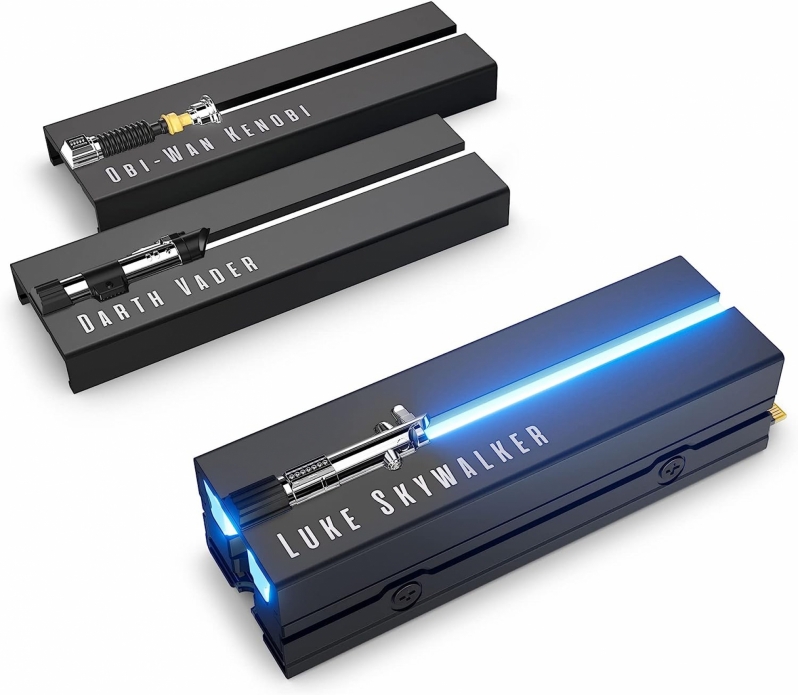This is the SSD your looking for – EK and Seagate team up to create Lightsaber Collection Star Wars FireCuda SSDs.
EK and Seagate have created Lightsaber Collection Special Edition FireCuda PCIe Gen4 NVMe SSD and they look great
EK and Seagate have teamed up to create special edition Star Wars SSDs that are inspired by the most iconic Jedi (and Sith) of the Star Wars Universe, offering owners interchangeable plates that feature designs for Luke Skywalker, Obi-Wan Kenobi, and Darth Vader.Â
Underneath EK’s custom RGB heatsink is a Seagate FireCuda 530 SSD, one of the fastest PCIe 4.0 SSDs available. This NVMe 1.4 SSD is capable of delivering 7,300 MB/s sequential read speeds, making it more than fast enough for modern gaming and productivity workloads.
EK/Seagate’s Star Wars Lightsaber Edition SSDs are available in 1TB and 2TB forms, and the links below showcase the SSD’s current pricing on Amazon. These prices are much larger than Seagate’s barebones FireCuda 530 SSDs, but those SSDs do not come with a large RGB EK heatsink with three Star Wars themed face plates. This high pricing should be expected, as Disney’s not going to let EK and Seagate use their Star Wars branding for free.Â
Pricing – At the time of writing
– Seagate FireCuda Lightsaber Legends Special Edition 1 TB PCIe 4.0 SSD – £152.04
– Seagate FireCuda Lightsaber Legends Special Edition 2 TB PCIe 4.0 SSD – £230.08
EK has confirmed that the face plates of these Star Wars Lightsaber Edition SSDs are using a patent-pending design, which means that we should expect EK to use this SSD heatsink design in the future with other custom faceplates. Does this mean that we should expect more branded EK SSDs? I guess we have to wait and see. Â
You can join the discussion on Seagate’s Lightsaber Collection Special Edition FireCuda PCIe Gen4 NVMe SSDs on the OC3D Forums.




